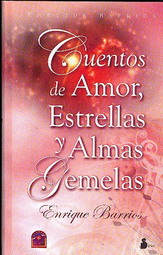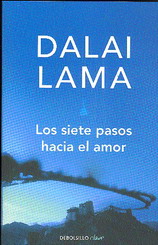El Tercer Ojo

El Tercer Ojo
- EAN: 9789501605006
- ISBN: 9789501605006
- Editorial: Editorial Troquel
- Año de la edición: 2018
- Encuadernación:
- Medidas: 0 X 0 mm.
- Páginas: 0
![]() (0 Comentarios)
(0 Comentarios)
Comenta y valora este libro
Disponible 48/72 horas
Descripción
Tercer Ojo
Otros libros de Otros Autores
Edgar Cayce.Sobre la reencarnación
Esta obra tan ilustrativa desvela la realidad oculta con la que todos convivimos: el eterno renacer. Contiene misteriosos relatos de personas que han vivido anteriormente, así como pruebas notables de la existencia de una fuerza unificadora que se difunde por el universo, eternamente. Argumentos convincentes a favor de la reencarnación, expuestos y documentados por el vidente posiblemente más importante de América.
dto.
Cuentos de amor, estrellas y almas gemelas
El alma compañera se encuentra cuando ya no se necesita una muleta, cuando se ha aprendido a valerse por sí mismo en la soledad. Cuando ambos han alcanzado ese nivel, entonces están listos para ofrendar un alma libre y sin quiebros al ser amado. Sólo a partir de esas condiciones se puede producir el encuentro definitivo, el cual siempre se realiza en las cumbres, en las cimas de la conciencia, porque es una relación de yo real a yo real. La nostalgia por la ausencia, el encuentro predestinado, el humor, el conocimiento y la fantasía se mezclan en estos once cuentos maravillosos en los que el amor se entrelaza con el sueño de fraternidad terrestre y cósmica. Las distancia siderales en espacio y tiempo no son obstáculo para la fuerza del amor. E igualmente, gracias a esa misma fuerza, la infelicidad que rige actualmente en la Tierra podría no tener por qué ser para siempre.
dto.
Los siete pasos hacia el amor
Abramos nuestros corazones y nuestras mentes a un amor sin límites
En un proceso escalonado en siete pasos, el Dalai Lama nos enseña a ampliar el concepto del amor hasta convertirlo en la quintaesencia de la alegría y la satisfacción personal. Despojarnos de los prejuicios, volcarnos en los demás desde la compasión y dejar atrás los convencionalismos: así alcanzaremos la auténtica sabiduría.
dto.



